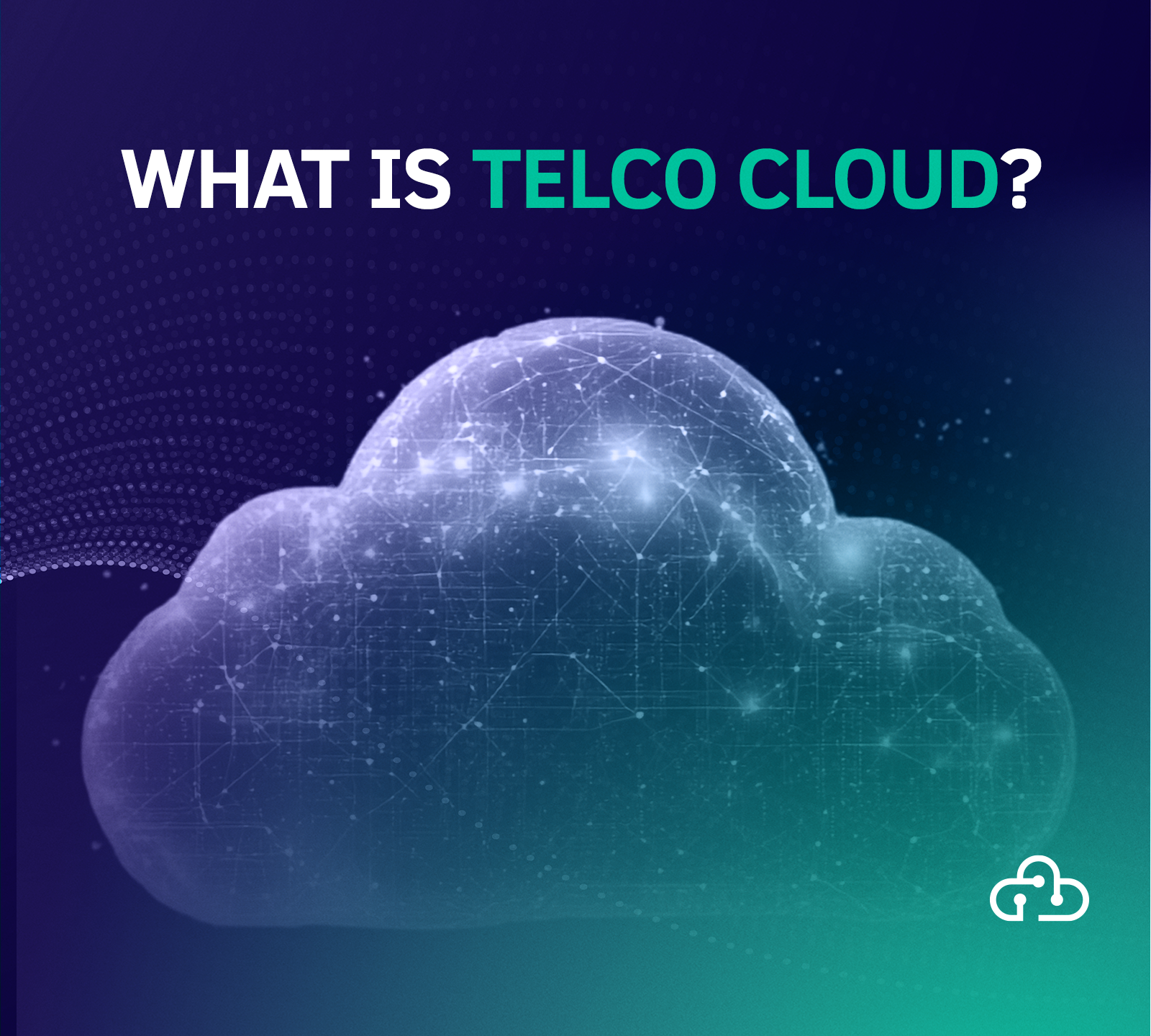What is telco cloud?
Telco cloud is the modernization of telecom networks through the use of cloud-native technologies. It shifts network functions, such as routing, switching, and core operations, from purpose-built hardware to virtualized software running on standard, flexible cloud infrastructure. This evolution enables telecom operators to build networks that are programmable, automated, and ready for rapid innovation.
Rather than being tied to physical equipment, telco cloud allows services to be deployed and scaled dynamically across distributed environments. It’s a key enabler for advanced connectivity, laying the foundation for delivering cutting-edge capabilities like 5G, network slicing, and edge services with greater efficiency and agility.
Why is telco cloud used?
Due to the great demand for 5G networks, edge computing, and other cloud-based services, many telcos have felt the pressure to adapt and provide their customers with more innovative networks and services. Telco cloud is a market expected to grow from $44.7 billion in 2024 to $51.67 billion in 2025.
Telco cloud is an alternative to traditional telecom networks that were built on specialized, on-premise hardware. The rigid nature of this hardware makes it time-consuming and expensive to deploy new services quickly — which limits the scalability and flexibility of their infrastructure.
With the rise of cloud computing, telecom providers now have the opportunity to move away from rigid infrastructure and adopt a flexible, software-defined approach. Embracing telco cloud means re-architecting the network to support cloud-native principles, enabling telecom operators to unlock the capabilities of 5G, edge computing, and large-scale connectivity.
What are the key technologies of telco cloud?
- Network function virtualization (NFV): Network services like 5G and routing are delivered through software on Network Function Virtualizations (NFVs). More recently, Cloud-Native Network Functions (CNFs) have used containerized microservices to deliver smaller, independent network functions.
- Software Defined Networking (SDN). SDN separates the control plane from the data plane, allowing the entire network to be managed more flexibly and in real-time.
- Multi-cloud and hybrid-cloud. With the need to combine NFVs, CNFs, and SDN to deliver telco services, there’s no one-cloud-fits-all solution. Telcos are using a combination of private telco clouds, public clouds, and edge clouds to manage network services as efficiently and cost-effectively as possible.
What are the benefits of telco cloud?
1. Respond to customer and market needs at speed
Without being limited by the rigidity of specialized hardware, telcos can deploy services via their network functions on telco cloud a lot quicker than legacy systems. Being able to go to market at speed helps companies deliver the services that customers need, when they need them.
2. Reduce infrastructure and operational costs
Replacing expensive, dedicated hardware with software that runs on regular servers means telco companies can lower their infrastructure costs. As telco cloud fuels the adoption of automation and centralized management, businesses can also focus operational resources elsewhere.
3. Improve operational efficiency and customer satisfaction
On top of reducing operational costs, telco cloud can improve the efficiency of operations. SDNs help to simplify the function of networks, while automation and orchestration technology support faster and smarter decision making, helping to improve performance and customer satisfaction.
4. Advance innovation in the telco industry
Technology is rapidly evolving, and services like 5G, edge computing, AI, and machine learning are driving consumer demand. With cloud-native infrastructure like telco cloud, companies can test ideas and create new services that meet such demand at a lower cost of failure.
LabLabee can support your transition to telco cloud
The transition to telco cloud requires a significant digital transformation. Such change brings with it new skills and expertise that telco providers, operators, and other related businesses need to develop, deploy, and manage telco services.
Backed by a competent, upskilled team of engineers with a practical knowledge of telco cloud technologies who are eager for change, companies can look forward to unprecedented operational and business growth. That’s where LabLabee’s hands-on labs come in.
At LabLabee, we understand that digital transformation doesn’t come from theory alone. It comes from practical experience. That’s why we developed Telco Cloud Discovery for Managers — hands-on training that gives students, engineers, managers, or executives insights and best practices into telco cloud infrastructure, network virtualization, containerized microservices, as well as automation.
No matter where you are in your telco cloud journey, LabLabee is here to make learning and practicing telco cloud, accessible and affordable for all. You can learn more about our hands-on telco cloud training lab and book a demo here.





